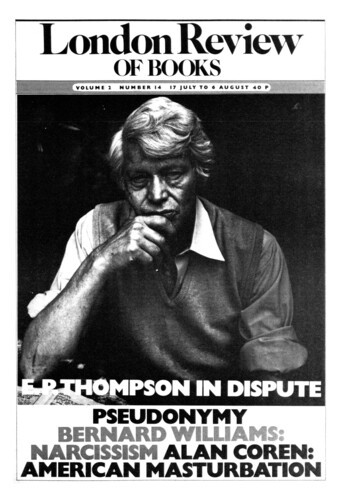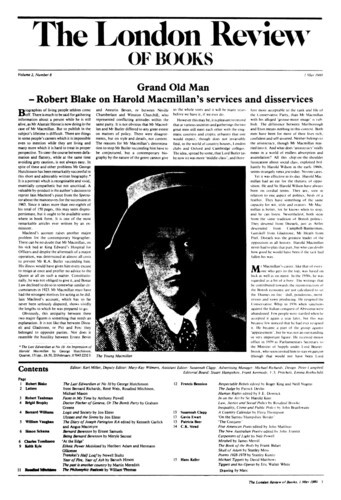Pornography and Feminism
Bernard Williams, 17 March 1983
John Sutherland has produced ‘a calendar following a series of events (mostly trials) from 1960 to the present day’, which deals briefly and brightly with obscenity cases from Lady Chatterley’s Lover and Fanny Hill to The Romans in Britain. The aim is to investigate changes in public attitudes to ‘offensive literature’. It is a lively survey, but is not the useful history of that process which might be written.





